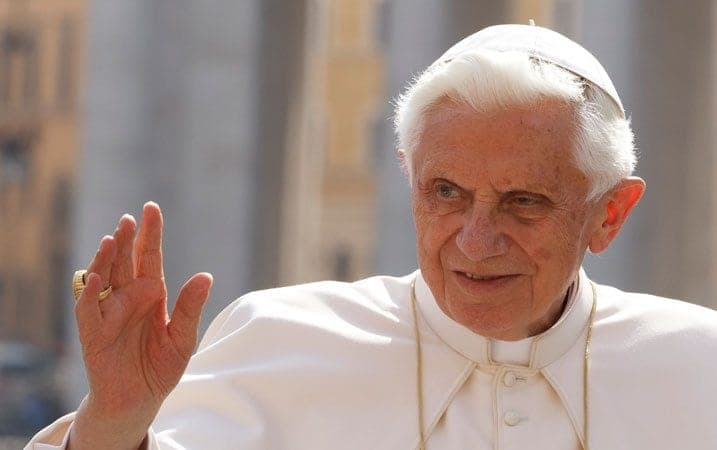ROME— Although emeritus Pope Benedict XVI has been largely silent since his resignation, he indirectly stepped out from behind the shadows on Saturday, using a statement from the Vatican Press Office to insist that claims the famed “Third Secret” of Fatima has not been revealed in full “are pure inventions, absolutely untrue.”
Benedict’s statement came in reply to claims made by a German professor named Ingo Dollinger, who recently said that in 2000, then-Cardinal Joseph Ratzinger told him in confidence the third message transmitted by Our Lady of Fatima hadn’t been completely released.
Dollinger spoke with blogger Maike Hickson of One Peter Five, and confirmed that Ratzinger, who at the time was prefect of the Congregation for the Doctrine of the Faith (CDF), the Vatican office that during the Great Jubilee of 2000 released the “Third Secret,” had told him, “There is more than what we published.”
According to the German scholar, before becoming Pope Benedict, the cardinal also said that the unpublished part of the secret speaks about “a bad council and a bad Mass” that was to come in the near future – presumably a reference to the Second Vatican Council and its liturgical reforms, since the secrets are believed to have been entrusted by Mary to the Fatima visionaries in 1917.
Dollinger’s words were then picked up by other news outlets, which prompted the emeritus pope to respond.
“In this regard, Pope emeritus Benedict XVI declares ‘never to have spoken with Professor Dollinger about Fatima,’ clearly affirming that the remarks attributed to Professor Dollinger on the matter ‘are pure inventions, absolutely untrue’, and he confirms decisively that ‘the publication of the Third Secret of Fatima is complete’,” the Vatican statement says.
The statement was released in Italian, English and Spanish, typically an indication the Vatican wants it to have a wide distribution.
What is generally called the “Third Secret” represents the third and final part of the full prophetic Secret revealed by Our Lady of Fatima to three shepherd children in Portugal on July 13, 1917. The first two sections were revealed by one of the children, Sister Lucia, in 1940s, when she wrote her memoirs.
According to Lucia, the Virgin asked her to put the third part in writing, and to have her bishop deliver it to Pope Pius XII. In the sealed envelope containing the message, Lucia also indicated that it was to be revealed after 1960.
The Vatican released it only in 2000.
In 1984, Ratzinger said that “if [the Third Secret] is not published … it is to avoid confusing religious prophecy with sensationalism. But the things contained in the Third Secret correspond to what has been announced in Scripture and are confirmed by many other Marian apparitions.”
Speculation about the secret became a constant in some circles, leading to the decision to publish it in 2000.
As it was revealed, the third secret talks about a “bishop dressed in White,” which Lucia and the two others believed was the pope, “killed by a group of soldiers who fired bullets and arrows at him,” killing also bishops, priests, men and women religious and lay people.
According to the interpretation offered by the doctrinal congregation, the three secrets involve Hell, World War I and World War II, and the 1981 Pope John Paul II assassination attempt.
When the third section was revealed, Ratzinger said that “The events to which the third part of the ‘secret’ of Fatima refers now seem part of the past. […] Those who expected exciting apocalyptic revelations about the end of the world or the future course of history are bound to be disappointed.”
On Friday, speaking to journalists after the presentation of a book, Benedict’s longtime personal secretary, Archbishop George Gaenswein, said the emeritus pope is “doing well” considering he’s 89.
“He prays, loves to study and read, answers mail, walks in the Vatican gardens praying the rosary, and welcomes visits,” he said.
He also said that on June 29 there will be a celebration of Benedict’s 65th anniversary as a priest, which Gaenswein believes will provide the opportunity for the world to see the pope emeritus doing well. It will also show, Gaenswein said laughingly, that he was “stupid” to suggest in a recent interview that Benedict is like “a candle slowly burning itself out.”













